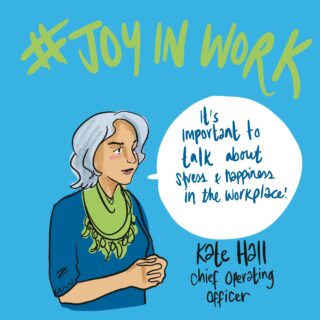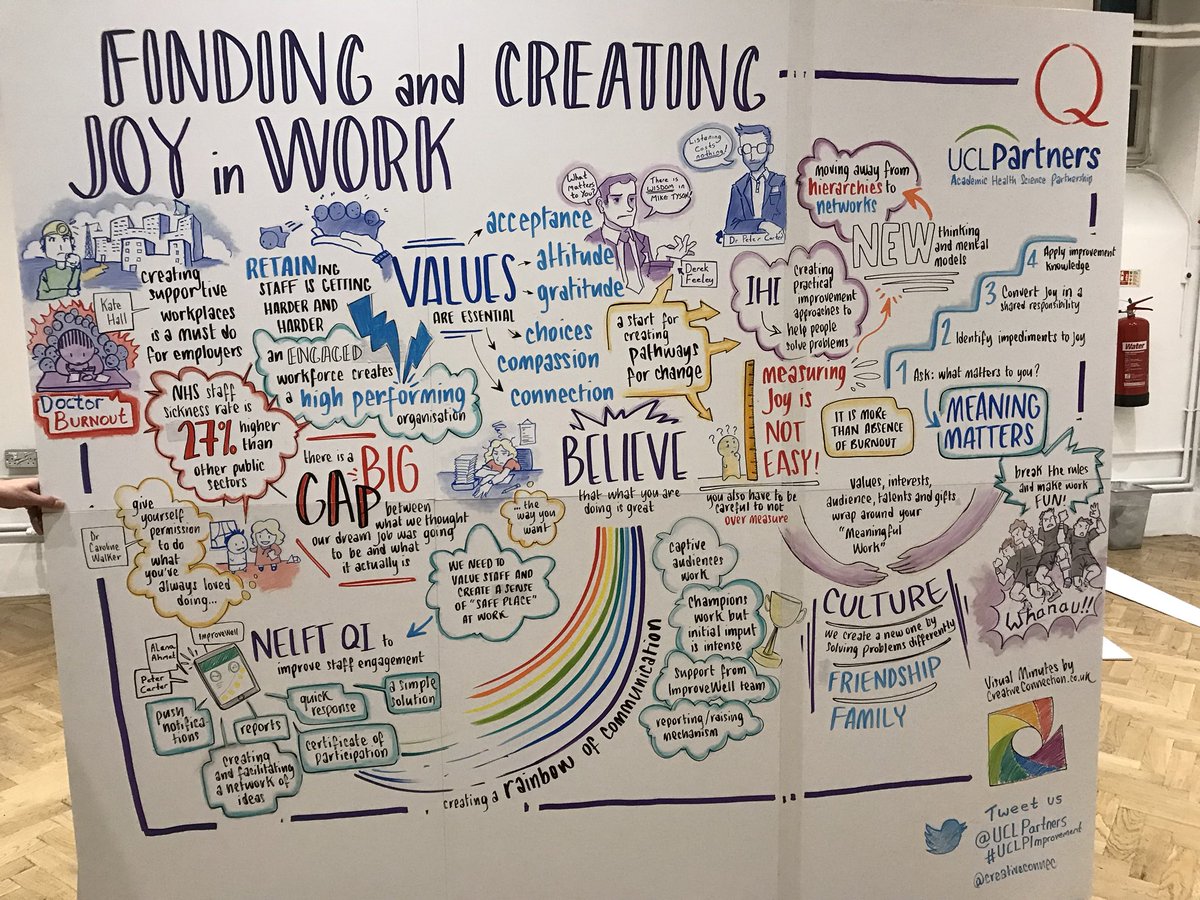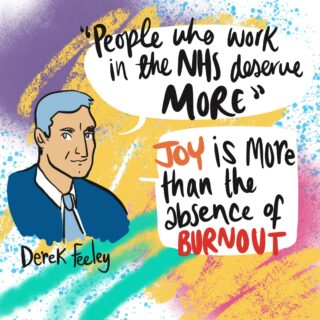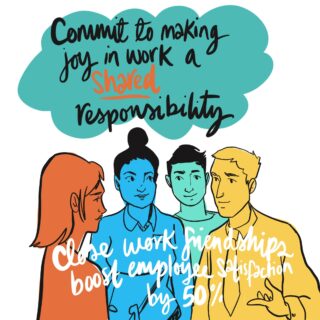 What matters to you? This is a question that those of us in the health improvement world have become used to asking our patients and service users and their families. It has helped us to focus how we organise and deliver care so that it is built around the needs and wants of those accessing it, rather than those of the system providing it.
What matters to you? This is a question that those of us in the health improvement world have become used to asking our patients and service users and their families. It has helped us to focus how we organise and deliver care so that it is built around the needs and wants of those accessing it, rather than those of the system providing it.
But how often do we stop to ask ourselves, what matters to me? Recent years have seen increases in NHS staff reporting burnout, higher levels of staff turnover and a sickness rate that is 46% higher than in other sectors. Joy in Work is gaining traction as an approach to tackling some of these issues and in the Five Year Forward View, Simon Stevens states that “NHS staff have some of the most critical but demanding jobs in the country. Creating healthy and supportive workplaces is no longer a nice thing to have, it’s a must do for employers”.
But what does Joy in Work mean and where on earth do you start? Earlier this month, UCLPartners held an event for Q members and our wider Improvement Network exploring the topic of Joy in Work. Our speakers approached the subject from different angles. Caroline Walker, founder of the Joyful Doctor, talked about her experience of overcoming burnout, providing ideas on how to ensure we consider our individual needs in addition to those of others. We heard from Peter Carter and Alana Ahmet from NELFT, who spoke about an organisational initiative to promote engagement through ImproveWell, an app which encourages staff to submit improvement ideas and captures real-time feedback on wellbeing. Finally, Derek Feeley, President and CEO of the Institute for Healthcare Improvement, spoke about how IHI developed their Joy in Work framework, to support organisations to transform their culture.

The event was inspiring. The three sessions prompted discussions on how to create a work environment where staff feel connected to their purpose – and why this is fundamental to providing excellent services. It would be impossible to share everything, but here are my key takeaways from the talks:
 Gratitude
Gratitude
Caroline Walker spoke engagingly about different things to pay attention to in order to rediscover the joy in our work, such as permission, compassion, acceptance, and the one that resonated most with me was gratitude. Pay attention to the things that you are grateful for in your work and at the start of every day, or even every meeting, find three of these and say them out loud. When we practice gratitude, it is much harder to feel stressed.
Permission
This idea – introduced by Caroline – cropped up again in NELFT’s presentation. By asking trainee doctors to suggest ideas for improvements, NELFT gave permission at all levels to have an input. One of the biggest things that made a difference in this pilot project was that people knew their ideas, no matter how small, would be taken seriously. This was a great lesson in staff engagement.
 Friendship and teamwork
Friendship and teamwork
Close work friendships boost employee satisfaction by 50% and people with a best friend at work are seven times more likely to engage fully in their work. This is the ‘low-hanging fruit’, according to Derek Feeley and one of the best places to start if you’re looking at cultural improvement, because you need engagement at every level to make it work. Organising social activities, spending time to develop a shared team understanding, and even something as simple as encouraging people to take lunch breaks together can bring rapid and great results.
 What matters to me?
What matters to me?
And this is what it boils down to for me. When I think about when I’ve been happiest and most productive at work, when I’ve had most joy, it has been when I have felt that my input is valued by the organisation, when I’ve had the time and space to develop lasting friendships and when I’ve been able to reflect on what it is about my work that I enjoy and am thankful for. These things alone aren’t going to address some of the broader issues that are affecting people working in health, and organisations will need to commit to transforming their culture – perhaps using something like the IHI framework as a starting point – if they want to bring about lasting improvements in the well-being of their employees. But it’s a good place to start.
Comments
Dimple Keen 27 Nov 2018
What a great blog Sophie! Really loved hearing how the session went (jealous I couldn't be there, what a great line up!).
You're absolutely right about finding joy in work. I hope you can attend this call, organised by the joy in work sig next week
https://q.health.org.uk/event/joy-in-work-sharing-experiences/
Thanks and have a joyful day!!!
Sophie Bulmer 27 Nov 2018
Oh what a shame - I'm interviewing all that day for one of our programmes, so can't make it. Lovely that we're seeing a few different events on the topic though. Wishing you a joyful day too!
Jonny Moses 3 Dec 2018
Well done this is such a fantastic reflective blog on such an important topic. Will look out for more Joy at Work events!